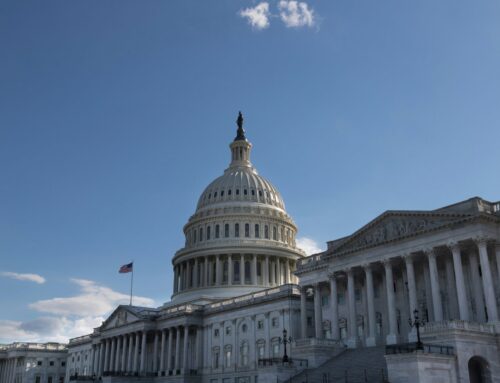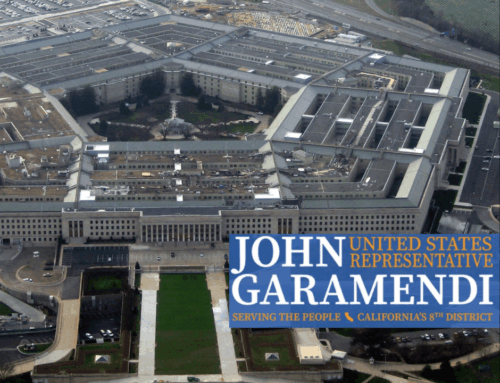Our last two wastebaskets highlighted some of the findings in our “Paying the Price” report about climate costs being borne increasingly by taxpayers. Part of our mission, as you may recall, is hammering federal spending and policies that are not only wasteful, but also create costs down the road. The nexus of harm and waste, as we say. This is why we are such ardent supporters of things like active mitigation against future damages, from climate change or any future liability.
As a segue back to our regularly scheduled programming, let’s talk about last week’s release of the FY24 defense appropriations bill. The bill provides $826.45 billion in new discretionary spending for Fiscal Year 2024, which is $28.71 billion – or 3.6% – over the FY23 enacted level. Regular Wastebasket readers will recognize some of these points:
- Funding the modernization of the nuclear triad: the B-21 Raider, the Columbia Class Submarine, and Sentinel;
- Increasing investments in 5th and 6th generation aircraft like the F-35 and Next Generation Air Dominance; and
- Rejecting the Biden Administration’s shipbuilding plan by preventing 4 ships from early retirement.
The land-based component of the nuclear triad, the F-35, and the Littoral Combat Ship have all been on our radar for a while as questionable investments of our tax dollars, and we will return to each of these line items in due course. But before we turn to the main event, let’s take a quick time-out to acknowledge the silly political talking points baked into defense appropriations. This is certainly not the first time, and it will not be the last, but c’mon folks. Drag brunches? Seriously?
Getting back to defense, the bill also prohibits the use of funds to promulgate the rule proposed by the DOD, titled “Federal Acquisition Regulation: Disclosure of Greenhouse Gas Emissions and Climate-Related Financial Risk.” TCS supports this proposed rule, and we hope this language preventing its implementation gets stripped out as this legislation progresses.
The Federal Acquisition Regulation (FAR) is a set of rules the U.S. government follows when acquiring goods and services. It’s basically a playbook for how the government buys things. It is managed by the FAR Council, which is made up of representatives from the agencies involved in acquisition, including DOD, as well as GSA, OMB, and NASA. The FAR Council has proposed this disclosure rule to require certain federal contractors to provide information about their greenhouse gas emissions and any financial risks they face due to climate change. Contractors would also have to set “science-based targets” for reducing their emissions.
The idea behind this rule is to make sure these contractors are aware of and transparent about their impact on the environment and the financial risks associated with climate change. These risks can have a big impact on their balance sheets and lead to things like increased costs, lower asset values, or even defaults on loans. It’s important to understand that climate risks are different from other risks because they’re systemic, meaning they can affect the entire financial services industry. They can have serious consequences for businesses and the economy as a whole. It’s more serious than drag brunches, in other words.
We believe federal spending and policies should proactively address the impacts of intensifying natural disasters, aiming to reduce the reliance on billion-dollar emergency disaster relief packages. Increasing transparency and awareness of how industry, particularly major government contractors, are affected by climate-related risks is a positive and necessary step toward improving the public’s understanding of the costs of climate change and mitigating its risks. Furthermore, this would inform contracting officers about climate impacts of various entities when they are making awards.
The proposed rule this bill is trying to stop would affect a relatively small number of government contractors (the largest ones) who account for an oversized contribution to GHG emissions. It is based on credible, well-known disclosure criteria. The Securities and Exchange Commission (SEC) has also proposed a rule that aligns with these criteria, aiming to improve and standardize disclosures of climate-related financial risks for SEC registrants.
Lastly, by leveraging procurement policies – taxpayers spent $630 billion on federal procurement just in 2021 – the government can encourage investment and innovation in ways that reduce liabilities and future costs for taxpayers.
And with all that extra cash in our pockets, we can afford to eat brunch wherever we like.










